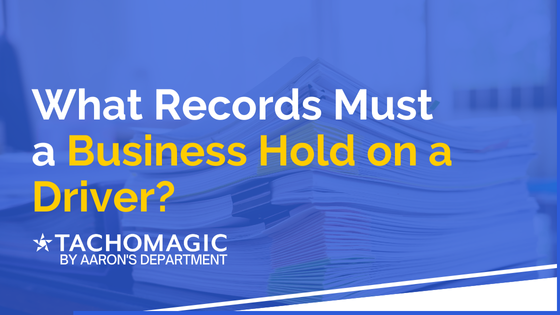When you employ drivers, you’re responsible for keeping accurate records that show you’re meeting safety regulations and following the law. These requirements don’t just protect you from potential fines—they also help ensure your drivers and other road users stay safe. Here’s what you need to know on what records must a business hold on a driver.
1. Proof of Valid Driver’s Licence
At a minimum, verify each driver’s licence and keep a record of it. This isn’t a one-time check; licences need to be reviewed regularly to confirm they’re still valid and haven’t been revoked or expired. Some businesses check annually or every six months, while others choose to do it even more frequently.
Key points to consider:
- Record the driver’s licence number, date of birth, and licence category.
- Document the date and outcome of each check.
- If you’re using an online licence checking service, save the confirmation or reference number.
2. Driver Qualification Card (DQC) and CPC Training
For certain commercial driving roles, drivers are required to hold a Driver Certificate of Professional Competence (CPC). Along with keeping a copy of their DQC, you should also track any relevant CPC training records.
Why it matters:
- CPC training must be refreshed every five years.
- By recording training dates and certificates, you can quickly prove compliance if questioned by regulators.
3. Tachograph Data and Hours Worked
If your vehicles require tachographs, you must keep detailed records of driver hours, break times, and rest periods. This includes both digital and analogue tachographs.
How to manage it effectively:
- Download digital tachograph data at least every 28 days from driver cards and every 90 days from vehicle units.
- Store driver logbooks and analogue charts securely.
- Track any infringement reports or corrective actions that arise.
- Use automated solutions to make things simpler. For instance, TachoMagic's TADDs can automatically download tachograph data, letting you stay on top of drivers’ hours without constant manual checks.

4. Working Time Records
The Working Time Directive (or relevant national rules) also requires you to track total hours worked, including non-driving tasks. This is separate from driver hours regulations and ensures employees aren’t overworked.
Tips for easy tracking:
- Use software that centralises both driving hours and other duties.
- Keep timesheets or digital logs of start times, end times, and break periods.
TachoMagic analyses tachograph data to help you keep track of driving hours, and notify you if anyone has worked longer than they should, or not taken long enough breaks.
5. Vehicle Maintenance and Defect Reports
Although not strictly “driver records,” maintenance logs and defect reports are tied to driver safety. Drivers often conduct daily walkaround checks, and any issues they find must be reported immediately.
Why it’s important:
- In the event of an inspection, you’ll have proof your vehicles were serviced correctly.
- It shows a proactive commitment to road safety and vehicle reliability.
6. Incident and Accident Reports
If one of your drivers is involved in an incident, you need a formal record of what happened, any investigations, and any measures taken afterward. This can include insurance claims, witness statements, or retraining sessions.
What to include:
- Date and location of the incident.
- Description of the event (including relevant photos).
- Actions taken to prevent a similar occurrence in future.
7. Proof of Right to Work
Though this is general employment law rather than driver-specific, you must verify a person’s right to work in your country. Keep copies of passports, visas, or other relevant documents. Penalties can be severe if you’re found employing someone without the correct permissions.
Additional Tips for Compliance
Keep Records Organised and Accessible
Develop a system—digital or paper—that lets you locate any record quickly. If you’re ever audited, having everything in one place will save a lot of hassle.
Stay Updated on Legal Changes
Regulations can change frequently in the transport sector. Sign up for official newsletters or regular updates from trusted sources to make sure your knowledge is current.
Regular Internal Audits
Do spot checks on your record-keeping system. This helps catch minor oversights early and demonstrates your commitment to proper compliance.
Offer Refresher Training
If drivers repeatedly miss or fail to document important information, provide extra training. Well-informed drivers are key to accurate and complete record-keeping.
How to Get Ahead with Compliance
If managing driver records starts feeling overwhelming, consider adopting a digital system that automatically monitors licence statuses and stores your documents. Solutions like TachoMagic can take care of repetitive tasks—letting you stay focused on running your business and keeping your drivers safe on the road.
Conclusion - What Records Must a Business Hold on a Driver?
Staying on top of driver records isn’t just a legal box to tick; it cultivates a culture of safety and responsibility. Clear, accurate records help protect your drivers, your brand, and everyone sharing the road. By reviewing licence details, monitoring hours, and tracking vehicle maintenance, you’ll keep your operations on the right side of regulations—and give yourself peace of mind in the process.
Remember, strong record-keeping methods aren’t just about avoiding penalties. They also boost your business’s reputation and demonstrate genuine care for driver well-being. Whether you manage a fleet of vans or a roster of long-haul HGV drivers, the message is the same: don’t skip the paperwork, and stay ahead of compliance.
Further Reading
If you've found our post, "What Records Must a Business Hold on a Driver?" useful, you might also be interested in:
Comprehensive Guide to EU Driving Hours Rules
What Is The Driving Without A Tacho Card Fine?
A Guide to Transportation Management Software
About The Author

Simon Theaker
Simon has over 20 years of dealing with tachograph analysis, and the technologies involved.
His in-depth knowledge and hands-on experience have made him a key behind-the-scenes member of the TachoMagic team.
Through his blogs, Simon hopes to make the lives of Fleet Managers easier, as he shares the answers to some of the most common questions he has received.

